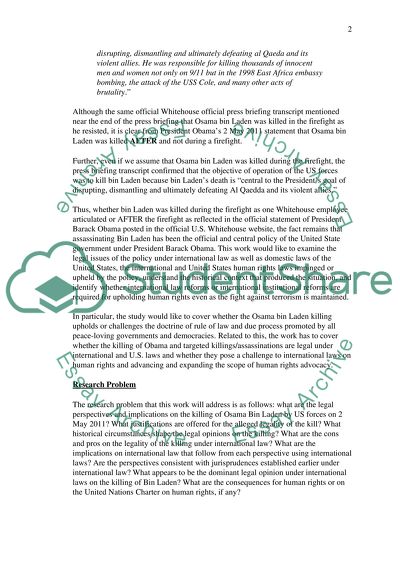Cite this document
(“The Killing of Osama Bin Laden by United States Forces Dissertation”, n.d.)
Retrieved from https://studentshare.org/law/1394142-the-killing-of-osama-bin-laden-by-united-states-forces
Retrieved from https://studentshare.org/law/1394142-the-killing-of-osama-bin-laden-by-united-states-forces
(The Killing of Osama Bin Laden by United States Forces Dissertation)
https://studentshare.org/law/1394142-the-killing-of-osama-bin-laden-by-united-states-forces.
https://studentshare.org/law/1394142-the-killing-of-osama-bin-laden-by-united-states-forces.
“The Killing of Osama Bin Laden by United States Forces Dissertation”, n.d. https://studentshare.org/law/1394142-the-killing-of-osama-bin-laden-by-united-states-forces.


